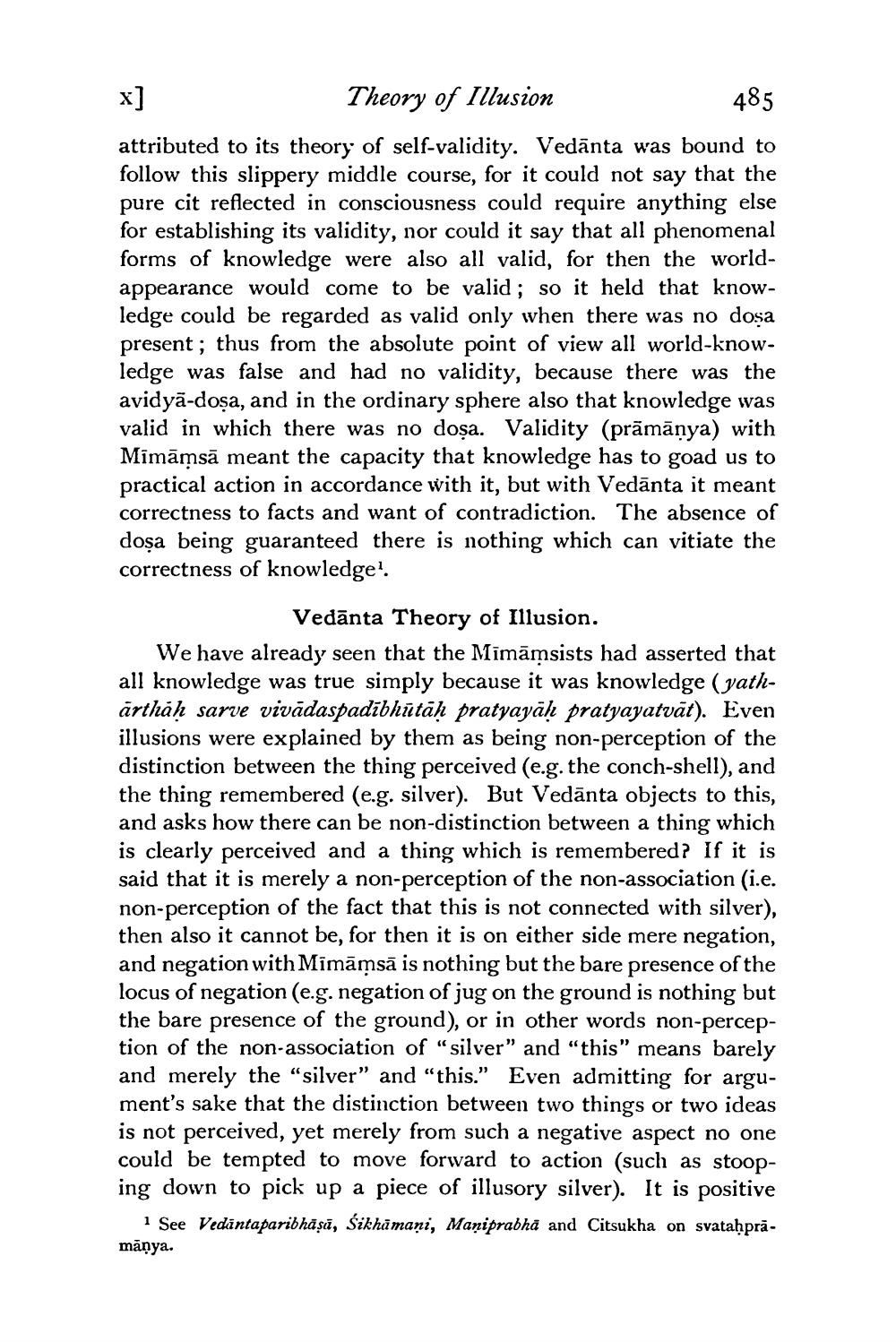________________
x]
Theory of Illusion
485
attributed to its theory of self-validity. Vedanta was bound to follow this slippery middle course, for it could not say that the pure cit reflected in consciousness could require anything else for establishing its validity, nor could it say that all phenomenal forms of knowledge were also all valid, for then the worldappearance would come to be valid; so it held that knowledge could be regarded as valid only when there was no doṣa present; thus from the absolute point of view all world-knowledge was false and had no validity, because there was the avidya-dosa, and in the ordinary sphere also that knowledge was valid in which there was no doșa. Validity (prāmāṇya) with Mīmāmsā meant the capacity that knowledge has to goad us to practical action in accordance with it, but with Vedanta it meant correctness to facts and want of contradiction. The absence of dosa being guaranteed there is nothing which can vitiate the correctness of knowledge'.
Vedanta Theory of Illusion.
We have already seen that the Mīmāmsists had asserted that all knowledge was true simply because it was knowledge (yatharthaḥ sarve vivadaspadibhūtāḥ pratyayaḥ pratyayatvāt). Even illusions were explained by them as being non-perception of the distinction between the thing perceived (e.g. the conch-shell), and the thing remembered (e.g. silver). But Vedānta objects to this, and asks how there can be non-distinction between a thing which is clearly perceived and a thing which is remembered? If it is said that it is merely a non-perception of the non-association (i.e. non-perception of the fact that this is not connected with silver), then also it cannot be, for then it is on either side mere negation, and negation with Mīmāmsā is nothing but the bare presence of the locus of negation (e.g. negation of jug on the ground is nothing but the bare presence of the ground), or in other words non-perception of the non-association of "silver" and "this" means barely and merely the "silver" and "this." Even admitting for argument's sake that the distinction between two things or two ideas is not perceived, yet merely from such a negative aspect no one could be tempted to move forward to action (such as stooping down to pick up a piece of illusory silver). It is positive 1 See Vedantaparibhāṣā, Šikhāmaṇi, Maniprabha and Citsukha on svataḥprā
māṇya.




